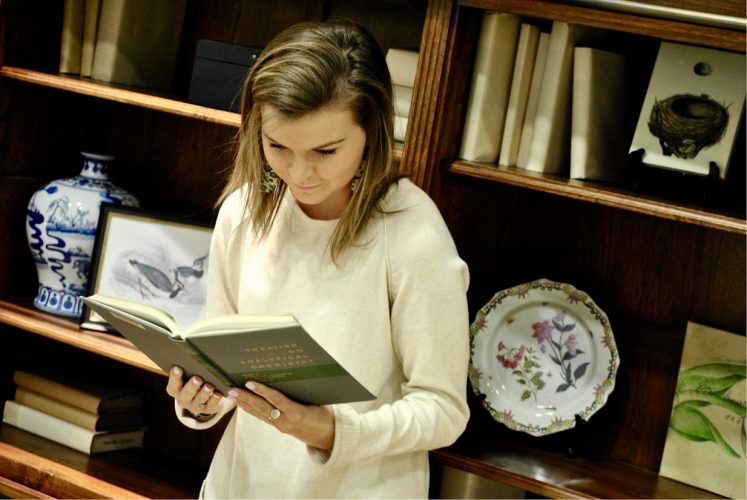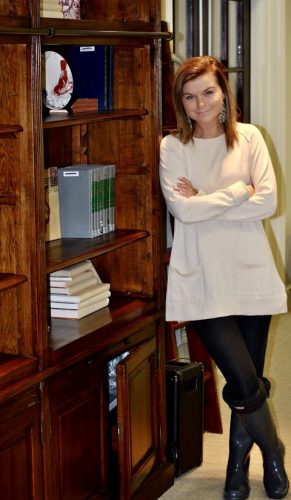Mackenzie Giegling, senior elementary education, psychology and Applied Critical Thought and Inquiry major plans to combine her education and sorority experience after graduation from William Jewell College.
Giegling will attend Washington University in Saint Louis, Mo. for audiology and communication sciences in order to become a K-12 deaf education teacher. Her decision to specialize in deaf education is a culmination of her experiences in the elementary education major and in her sorority, Delta Zeta.
“I started working with deaf kids in my fieldwork and stuff. I had two or three deaf kids that I’ve been able to help so that sparked my interest, and then I looked into the program and fell in love…Also, the sorority I’m in, Delta Zeta, we do philanthropy work with the Starkey Hearing Foundation, which helps hard of hearing children and adults and that actually continued my reason to pursue deaf education,” she said.

She mentioned times when she learned and used American Sign Language (ASL), although she is not fluent. She plans to take ASL electives at Washington University.
“Delta Zeta on this campus does the creed in sign language and then with our younger grades in elementary school, K-2, you introduce phonics and make awareness with letter-sound-correspondence. You do the sign language as hand motions, so those kids get familiar with the hand motions of the alphabet with sounds,” Giegling said.
She noted that ASL is not always necessary to work with deaf children.
“They’re actually teaching deaf children how to read lips and teaching parents how to teach their kids at home, without using sign language…They’re trying to get away from sign language almost, because the language is developing and changing so quickly and rapidly that it’s not all matching. All the sign language isn’t exactly pairing up, so the younger generation coming in isn’t learning as much,” she said.

Giegling wants to teach hard of hearing children who have had cochlear implants, surgically implanted hearing aids given to the profoundly deaf, during their transitional phase of learning.
“A lot of times when those kids are born completely deaf, so they miss the crucial stages of listening and learning about something as simple as the sound of rain — they don’t know how to put the sound of rain together with what rain is because they didn’t hear it when they were a baby. So catching them up with simple, realistic things that just happen in the world along with teaching them the curriculum and stuff,” she said.
Eventually, her dream is to further her work in transitional learning at the Central Institute for the Deaf (CID) in Saint Louis, a school known for its auditory-oral approach.
Giegling described the teaching style of the CID, which includes helping their students adapt to full-hearing environments.
“You start and teach your core subjects in a soundproof room and then you take the kids and try to teach them, it’s a lot of critical thinking…it’s a lot of question and answering, and then you take them to a real classroom setting where there is a lot of sound. They have to be able to learn how to adapt from soundproof, only hearing their voice, to a regular classroom. A lot of it is teaching them the curriculum, to catch them up to their grade level and then helping them get on level into that regular classroom,” she said.
Photos by Talia Zook.
